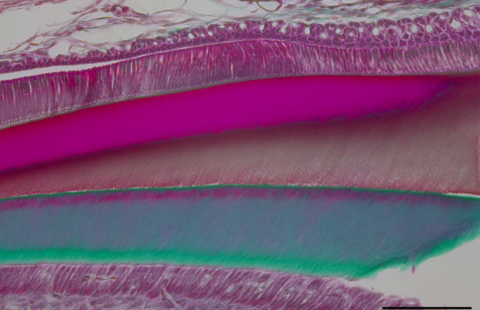According to the World Health Organisation and other recognised authorities, intellectual disability (ID) refers to an intelligence deficit (significantly reduced ability to understand new or complex information and learning and applying new skills) as well as limitations in adaptive functioning[1]. These limitations appear during the developmental period. Intellectual disability is common and affects about 1 to 2% of the population. The recent knowledge explosion regarding the causes of ID, as well as the underlying cognitive and adaptive processes, provides a better insight into the ability of people with intellectual disabilities to functional and develops appropriate strategies for learning, care and support.
(c) Fotolia
In this context, the National Solidarity Fund for Autonomy (CNSA) has commissioned Inserm to conduct a collective expert review to provide the latest scientific expertise from international and multidisciplinary research on intellectual disabilities. The collective expertise approach has enabled a review of scientific data in the following areas: definition and epidemiology; assessment of individual skills and deficiencies; as well as care and support during key stages in life.
A multidisciplinary group of 12 experts, researchers and clinicians was formed and accounts for the complementary nature of the represented scientific disciplines. Inserm has established a literary collection with 2,500 references that have been critically analysed by a group of experts.
Among the various expert findings, the assessment of skills and limitations of individuals with ID, as well as support requirements, often remain incomplete. Furthermore, among the recommendations from this study, authors advocate an in-depth review regarding the development of resource centres for intellectual disability. These structures would bring together needed expertise in the form of multidisciplinary teams (general physicians, paediatricians, geriatric specialists, pain specialists, neurologists, psychiatrists, psychologists, nurses, special needs teachers, speech therapists, social workers, etc.) to ensure a multidimensional assessment of the limitations and abilities of the individual’s activity, assess his/her needs in order to organise the required support, and provide coordinated and practical assistance that could contribute to the life course of an individual with intellectual disabilities and his/her family.
Download the full press release
Recommendations for actions:
- All actions are carried out as part of the international definition of intellectual disability, whether through public policy, professional practice or research.
- Better early identification of neurodevelopmental disorders by promoting early detection in “ordinary” children and improving systematic screening for neurodevelopmental disorders during mandatory examinations.
- Develop a multidimensional and personalised assessment for better diagnosis and appropriate support by improving the assessment of intellectual abilities, supplementing it with adaptive behaviour assessment that assesses social and emotional capabilities as well as cognitive and language skills. Finally, enable access to genetic aetiology.
- Develop the skills of the individual with ID throughout his/her life by promoting the development of communication and language, the acquisition of numeracy and literacy, and the development of self-determination.
- Support the individual throughout his/her life, from infancy to adulthood, by promoting the right to early intervention and education, as well as access to common childcare services available to everyone. Support access to employment and social participation in adulthood and encourage transitions throughout life.
- Improve access to care and the diagnosis of somatic diseases through screening and regular monitoring of diseases often associated with DI by developing close medical follow-up and improving admission and healthcare conditions in hospitals and clinics .
- Create “intellectual disability resource centres”. These structures would bring multidisciplinary teams together to provide coordinated and practical assistance that could contribute to the life course an individual with intellectual disabilities and his/her family.
- Provide appropriate and adjustable graduated support to families by developing their own skills through adequate support at the time of diagnosis and by considering the psychological detachment between the individual with DI and his/her family during the onset of adulthood.
- Develop and promote training on intellectual disability for all professionals with an inclusive approach.
Research recommendations:
- Validate and develop diagnostic tools and individual assessment.
- Learn about intellectual disabilities and trajectories of individuals.
- Better understand the development of skills in individuals with DI.
- Better understand the different aspects of adapted support.
[1] The literature today recognises the definition of adaptive behaviour as a complex concept based on three concepts: conceptual adaptive skills (language, reading, mathematical concepts, time, etc.), social skills (interpersonal skills, social responsibility, etc.) and practical skills (daily activities, occupational skills, etc.).


